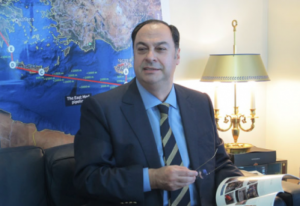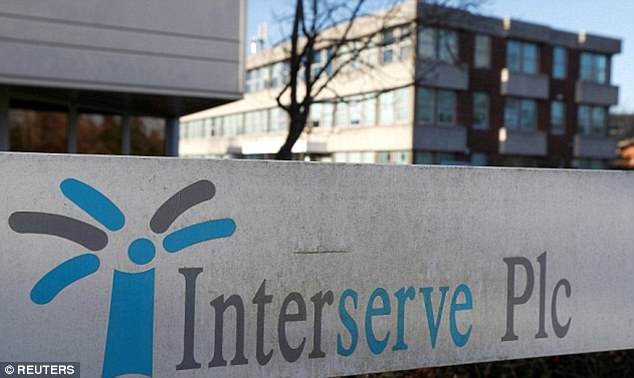

PowerHouse Energy Group Plc (AIM: PHE), the company focused on ultra high temperature gasification waste to energy systems, and the creation of Distributed Modular Gasification© (“DMG”), are delighted to announce the appointment of Roudi Baroudi to its recently established Advisory Panel.
Roudi is a global energy expert with over 37 years experience of international public and private companies across oil & gas, petrochemicals, power, energy-sector reform, energy security, carbon trading mechanisms and infrastructure. In addition, he is currently a member of the United Nations Economic Commission for Europe’s Group of Experts of Gas – this is a body established to facilitate dialogue on promoting safe, clean and sustainable
solutions for natural gas production.
With a wealth of international experience he has worked on project and program development with the World Bank, the IMF, the European Commission USAID and the Arab Fund for Economic and Social Development. Mr Baroudi is a regular lecturer on global energy affairs and is also the author and co-author of a number of
books, article studies and research reports on political, economic and climate change as well as other energy associated matters.
It should be noted that none of the Advisory Panelists are Directors of the Company, and while management, and the Board, will seek their counsel on particular matters pertaining to their individual expertise, the governance and decision making authority for the Company rests solely with the Board of Directors.
Keith Allaun, Executive Chairman of PowerHouse, said: “I believe it is a very strong validation of PowerHouse’s potential that we are able to attract someone of the calibre of Roudi to assist the Company.
“The tremendous advantages afforded the Company by such an experienced Advisory Panel cannot be overstated and we are very pleased to welcome Roudi to the team. The members of this panel, investing their time and commitment to our success, will help the Company achieve its commercial goals in segments of the market, and geographies, in which we are well suited to operate.
“I am honoured that each of these industry luminaries has agreed to serve our objective of ubiquitous DMG. With their assistance, we believe PowerHouse and DMG have a very bright future.”
Further information on Roudi Baroudi
Roudi Baroudi has more than 37 years of international public- and
private-sector experience in the fields of oil and gas, petrochemicals, power, energy-sector reform, energy security, environment, carbon-trading mechanisms, privatization and infrastructure.
Mr. Baroudi’s transactional practice began when he joined an energy firm in Pittsburgh, Pennsylvania, U.S.A., in 1978. His practice relates principally to the energy, high technology, renewable and green electricity, and life sciences sectors of the economy, and involves contract and legal negotiations and investment vehicles, business combinations, divestitures and operations, as well as various forms of corporate and government finance.
His international experience includes project and program development with the World Bank, the IMF, the European Commission, state-to-state protocols, USAID, the Arab Fund for Economic and Social Development, and Italian Bilateral
Protocols, as well as multilateral agency financing in the United States, the Middle East, Central Asia, Japan and Europe, many of which have involved negotiations between and among private and publicly owned concerns and national governments or state enterprises.
Mr. Baroudi has helped to formulate energy and environment policies in the Euro Mediterranean and North Africa region and for the Middle East area. He participated in the preparations of the Euro-Med Energy Free Trade Zone, and in the Euro-Med Regional and Euro-Med Government negotiations. He also has had a
role in energy and transportation policies, advising both the European Commission and its Mediterranean partners between the Barcelona and Trieste Declarations of 1995-1996 and 2004. In addition, Mr. Baroudi was a founding member of the Rome Euro-Mediterranean Energy Platform (REMEP).
In particular, his work and research on integration have focused on energy and transportation networks and related projects, including natural gas and electricity rings affecting both EU and non-EU member states bordering the Mediterranean. His expertise is regularly sought by the United Nations Economic
Commission for Europe (UNECE), which invites him to participate in the expert working party on topics such as gas savings, underground gas storage, and sustainable energy development.
Mr. Baroudi has done extensive work in energy, security and economic development, industrial programs which have help bring about energy and economic advances related to private sector power development, electricity market unbundling, gas market reform, political reform and deregulation. He also has done extensive work on international oil and gas ventures, including
petroleum development and exploration, as well as government legislation.
Mr. Baroudi has held a variety of influential positions. In 1999, he was elected secretary general of the World Energy Council – Lebanon Member Committee, a position he held until January 2013. He is also a member of the Association Française des Techniciens et Professionnels du Pétrole (French Association of Petroleum Professionals and Technical Experts). Mr. Baroudi is a
former senior adviser to the Arab Electricity Regulatory Forum (AREF), a member of the Energy Institute, (UK), and a member of the International Association for Energy Economics (IAEE) in the U.S.A. Mr. Baroudi also serves on several boards of directors of different companies and international joint ventures.
Mr. Baroudi is the author or co-author of numerous books, articles studies, and research reports on political, economic, climate change and other matters associated with energy. His insights on these and related issues are frequently sought by local and international companies, governments, media and television outlets. He is also a regular lecturer on global energy and transportation affairs.
In addition to the foregoing, Mr. Baroudi is currently a member of the United Nations Economic Commission for Europe’s Group of Experts of Gas, a body established to facilitate multi-stakeholder dialogue on promoting safe, clean, and sustainable solutions for the production, distribution and consumption of natural gas in the world’s single-largest energy market.
For more information, contact:
PowerHouse Energy Group plc Tel: +44 (0) 203 368
Keith Allaun, Executive Chairman 6399
WH Ireland Limited (Nominated Adviser) Tel: +44 (0) 207 220
James Joyce / James Bavister 1666
Turner Pope Investments Ltd (Joint Broker) Tel: +44 (0) 203 621
Ben Turner / James Pope 4120
Smaller Company Capital Limited (Joint Broker) Tel: +44 (0) 203 651
Jeremy Woodgate 2910
IFC Advisory (Financial PR & IR) Tel: +44 (0) 203 053
Tim Metcalfe / Graham Herring / Miles Nolan 8671
About PowerHouse Energy
PowerHouse is the holding company of the G3-UHt Ultra High Temperature Gasification Waste-to-Energy system, and the creator of Distributed Modular Gasification© (“DMG”)
The Company is focused on technologies to enable energy recovery from municipal waste streams that would otherwise be directed to landfills and incinerators; or from renewable and alternative fuels such as biomass, tyres, and plastics to create syngas for power generation, high-quality hydrogen, or potentially reformed into liquid fuels for transportation. DMG allows for easy, economical, deployment and scaling of an environmentally sound solution to the
growing challenges of waste elimination, electricity demand, and distributed hydrogen production.
PowerHouse is quoted on the London Stock Exchange’s AIM Market. The Company is incorporated in the United Kingdom.
For more information see www.powerhouseenenergy.net




